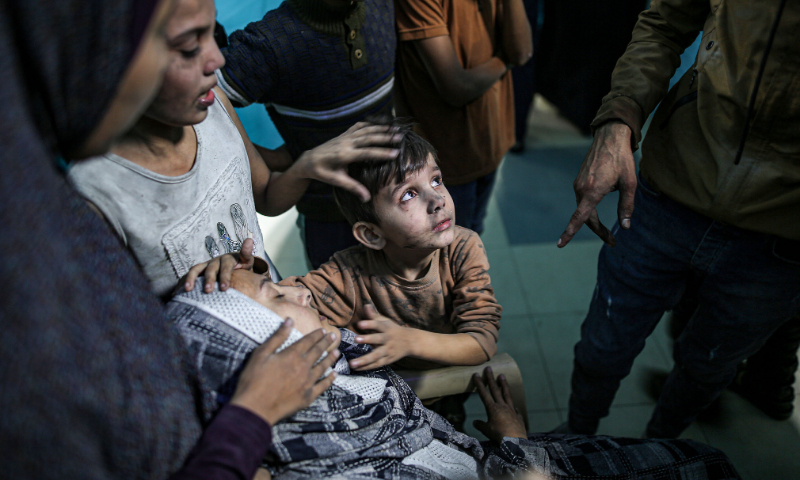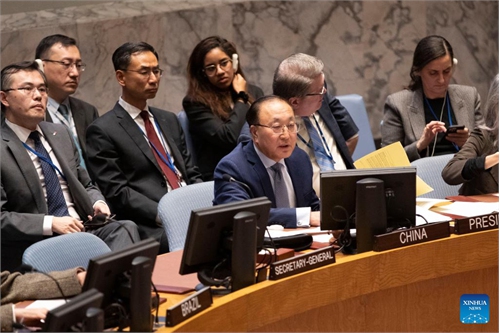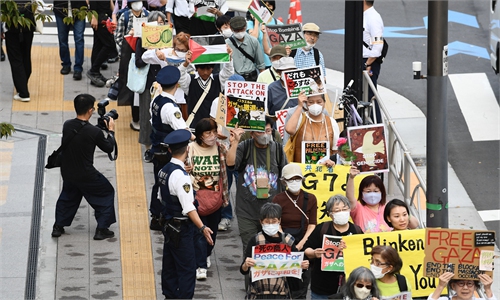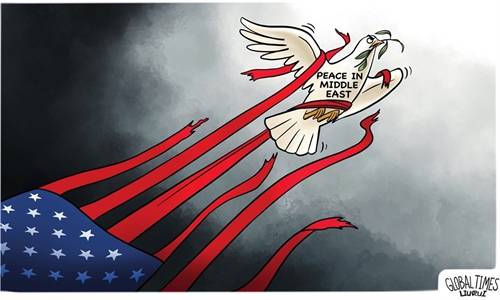Bombing of Gaza hospitals crosses the humanitarian bottom line: Global Times editorial

Palestinians including children are brought to Nasser Hospital for treatment after Israeli attack in Khan Yunis, Gaza on November 13, 2023. Photo: VCG
The whole world is witnessing a human nightmare unfold in Gaza Strip: Al-Shifa Hospital, the largest hospital in Gaza, is bombed and surrounded by tanks, and temporarily cut off from the outside world. As a result of a fuel shortage, the death toll of critically ill patients and premature infants keeps rising, and "the hospital no longer functions as a hospital." On November 13, an Israeli tank "is outside the gate of the outpatient clinic department," and "almost all" hospitals in northern Gaza have stopped services. The current death toll in Palestine has exceeded 11,000, with approximately 40 percent being children. The World Health Organization states that one child dies every 10 minutes. Regardless of how the warring parties justify their actions, this scene will become an indelible scar in the history of human civilization.Israel claimed that they do not target medical facilities and that the headquarters of Hamas is sited in bunkers under Al-Shifa Hospital. It accused Hamas of using patients and medical staff as "human shields." But Hamas denied this allegation. In the absence of concrete evidence and with Israel's overwhelming military strength, images related to Al-Shifa Hospital have broken through the blockade and spread worldwide. This has resulted in an outpouring of international sympathy for Gaza civilians and strong calls for an immediate ceasefire. Although determining right from wrong in a war is sometimes challenging, the moral balance is clear when the situation in Gaza has reached such a point. Making a moral judgment on this matter is not difficult.
Regardless of the words and actions, the basic principles stipulated by international humanitarian law, international human rights law, and various conventions must never be blurred or deviate from. The fundamental principle that the wounded and sick, civilians, medical personnel, ambulances and healthcare facilities should be protected is the clearest and most basic criterion. It is also the bottom line of human civilization. Whoever touches upon this bottom line, regardless of the reasons, the nature of the behavior undergoes a fundamental change.
According to the local health department, Al-Shifa Hospital has over 600 patients, including 40 premature infants in incubators. Due to the paralysis of hospital equipment, doctors are forced to move the premature babies from the incubators, wrap them in foil and place them next to hot water to keep them alive.
Such shocking details and images have undoubtedly brought immense public opinion and moral pressure to the conflicting parties. There have been several incidents in world history where a single photograph changed the course of a war. Now, every passing second in the Gaza hospital crisis signifies the loss of lives, and there is an urgent need for a larger-scale mobilization and organization of international calls for ceasefire and peace.
However, it is regrettable to see that the US and its closest Western allies currently still maintain an ambiguous stance. On one hand, they insist on not "immediately ceasing fire" in the name of the so-called fight against terrorism, emphasizing Israel's "right to self-defense," even though such attacks have far exceeded the scope of "self-defense." On the other hand, under the strong pressure of international public opinion and morality, they make statements like "we don't want to see firefights in hospitals." However, the humanitarian disaster in Gaza has shocked the entire international community, and Washington's related statements so far have been light and even perfunctory. Its loud voice in support of Israel's "right to self-defense" and its casual treatment of the humanitarian crisis undoubtedly form a stark contrast, making people clearly see what their claimed "rules-based international order" really is.
It is no longer a question of whether the escalating humanitarian disaster in the Gaza Strip should be stopped, but rather how to prevent the tragedy. It is obvious that as long as the artillery continues, the suffering there will only worsen, and it should not be so difficult for the international community to reach a basic consensus on this matter. In the face of a humanitarian disaster, the choice between pursuing one's own political self-interest or upholding morality and conscience not only tests the conflicting parties but also tests the US-led Western countries, which claim to prioritize human rights.



